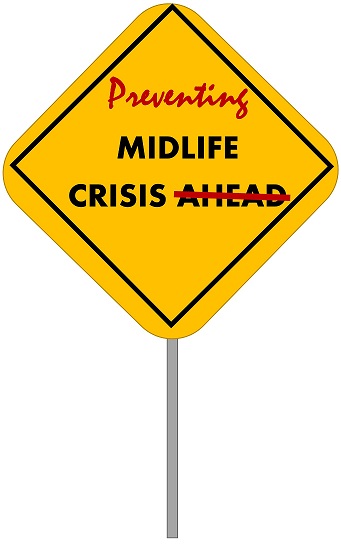Getting involved in innovations is a wonderful solution to avoid or resolve the midlife (or mid-career) crisis. The Merriam-Webster dictionary defines a midlife crisis as, “A period of emotional turmoil in middle age characterized especially by a strong desire for change.” Midlife crisis is not a medical condition but people going through a midlife crisis can experience anxiety and depression. The age at which people experience a midlife crisis can vary but typically occurs between the age of 40 and 50. As the opportunities available to people have increased in the last few years in many developing countries like India, I believe that the mid-life crisis has started to creep in early. After enjoying a string of promotions and pay rises, managers find their career stalled and find it difficult to switch jobs as employers prefer younger people. A few managers escape this crisis by starting their own company (startup).
Mid-life Crisis shouldn’t be ignored
Elliott Jacques coined this term of mid-life crisis in 1965. Jacques, a psychoanalyst, found that midlife crisis is so critical that many great artists and thinkers don’t even survive it. He crunched the numbers with a “random sample” of 310 geniuses and, indeed, discovered that a considerable number of these formidable talents—including Mozart, Raphael, Chopin, Rimbaud, Purcell, and Baudelaire—succumbed to some kind of tragic fate or another and drew their last breaths between the ages of 35 and 39. “The closer one keeps to genius in the sample,” Jacques observes, “the more striking and clear-cut is this spiking of the death rate in midlife.” Jacques further argued that around the age of 35, a genius can go in one of three directions:
- Could die literally or perish metaphorically, having exhausted most of the potential early on
- Could reach full creative potential but under tremendous anxieties of middle age. A few examples are – (a) Before his 38th birthday, Bach was just an unusually talented church organist and music tutor; it was only in middle age that Bach’s “colossal achievements as a composer” really began in earnest. (b) Although Shakespeare produced Romeo and Juliet in his early thirties, he is thought to have penned Julius Caesar, Hamlet, Othello, King Lear and Macbeth all between the ages of 35 and 40.
- Could change aesthetic or style dramatically at middle age, usually for the better. Such people become more prolific and accomplished. They become more patient and refined. A classic example from India is that of Amitabh Bachchan.
Trigger and Symptoms of mid-life crisis
Although midlife crisis is experienced at a certain age but not everyone experiences a midlife crisis. Two types of people are most susceptible to mid-life career crises:
- Who are incredibly successful and well-travelled – who didn’t find time to develop a life outside their work and later feel – What have I done all this for?
- The other, those who played it too safe and did not want to take risks, and now go into a world of regret. They hit a certain age where they cannot take risks and feel that they are too late.
The crisis often gets triggered by a significant life event, often one that reminds us of our age, and tells us that we’re “past our best”. A few main causes for midlife crisis could be:
- A feeling of “going nowhere” in the career. Growing sense of uneasiness that this work was not what one wanted to do with the rest of life
- A feeling of regret related to future goals and past achievements
Mitigation
Research shows that a sense of accomplishment of achieving something new is the best way to age and transition into midlife without the crisis. Therefore, best and perhaps the only solution for midlife crisis is to achieve something new all the time by favorably leveraging the attributes of getting older – Experience, Wisdom, Credibility, Respect and Network. In our life in institutions (corporate, academic or others), finding new is nothing but innovation. Can everyone be an innovator? No, but everyone, before reaching midlife, can be part of innovation and feel proud of delivering something new!
If a person is not an innovator/inventor himself, he can still be part of innovation by enabling (driving or facilitating) his team to innovate. To drive innovation in the organization, one needs experience and some authority, which everyone gets in varying degrees before the onset of midlife crisis. To facilitate innovations, one needs experience, network, wisdom and most importantly the knowledge about the organization’s antibodies through which the innovators must navigate to achieve success. Every manager after working for 15-20 years, would belong to either of the two sets:
- Innovator himself or
- One who could actively enable innovations either by driving them or facilitating them. (read related posts: Innovations are always top-down and Boss of an innovator is also an innovator)
In my close observation of many serial innovators who are in their mid-life, and I haven’t seen a single person who seem to be facing this crisis. On the contrary, they seem to have a lot of good ideas and a lot of energy and passion to work on ideas and feel that the time available is short to accomplish.
I have already explained in my earlier posts that innovation is an organizational sport and is also a tough sport for people to engage. In order drive or facilitate innovation it is important for all of us to engage with innovation early in our profession and learn the nuances of it.
References:

